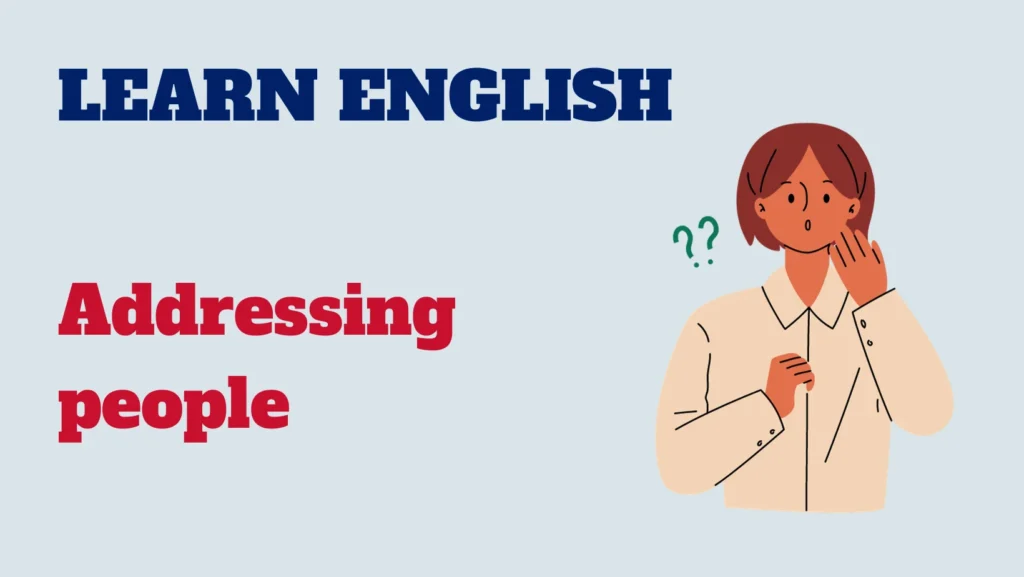Learning a new language involves understanding various ways to communicate with others. One crucial aspect of communication is knowing how to address people around you. In English, there are different ways to address someone formally or informally.

In this lesson, we will present a practical guide on how to address people in English, allowing you to communicate effectively in various situations.
Using first names
When speaking to a friend, a family member, or someone of similar age, it’s common to use their first name for informal address.
For example:
“Hey, Sarah! How are you doing?”
This approach is relaxed and suitable for friendly contexts.
Formal address – Mr., Mrs., Ms.
In English, formal address involves using titles like Mr., Mrs., or Ms. to show respect or when talking to someone you don’t know well.
For instance:
“Good morning, Mr. Johnson. How can I assist you?”
or
“Excuse me, Ms. Smith, could you please tell me the time?”
Use this formal style when maintaining a certain level of distance or addressing someone older.
Polite phrases
In English, it’s customary to use polite phrases when addressing others.
For example:
“Please, could you pass me the salt?”
or
“Excuse me, do you have a moment to help me?”
Polite phrases are crucial to convey respect and courtesy.
Casual expressions
In more informal settings, you can use casual expressions to address people.
For instance:
“Hey, buddy! What’s up?”
or
“Listen, I need to tell you something.”
However, be cautious with the use of these expressions as they might be considered impolite or inappropriate in certain situations.
Understanding how to address people in English is essential for effective communication. Whether using first names, formal titles, polite phrases, or casual expressions, it’s important to choose the right approach based on the context and your relationship with the person. Also, don’t forget the significance of intonation in conveying the right message. With a bit of practice, you’ll be able to address others appropriately and respectfully in English.



